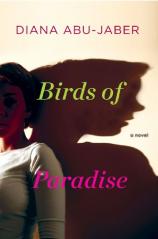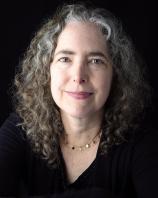Birds of Paradise
Review
Birds of Paradise
There are flowers named Birds of Paradise and actual feathered creatures called Birds of Paradise, but Diana Abu-Jaber is not writing about these natural wonders in her latest novel.
"It is rare that a book can be filled with such philosophical discussion and yet be so entertaining to read, but in the hands of Diana Abu-Jaber, BIRDS OF PARADISE is just the ticket. May Felice be with you!"
BIRDS OF PARADISE is about the gentrification of Miami, and a searing look at teenage runaways and the decisions that families make in these modern times that end up fracturing the family unit and releasing into the community dissatisfied and searching young humans. Their role models are self-satisifed and myopic narcissists, mothers and fathers who use their kids like an ace in a deck of cards. They are there for show, but God forbid they get in the way of the parents’ making money or finding fame. And yet, even though her push into the world is not exactly part of a labor of love, Felice, our teen protagonist, is liberated and enriched by the freedom she finds beyond the confines of her parents’ treadmill existence. And so is the reader.
Once Felice is out of the picture, her family members have to deal with the realities of what her existence leaves, what to fill the negative space with, if you will. Abu-Jaber is a surprisingly kind writer; in lesser hands, it would be far too easy to make one parent or another the scapegoat for the situation in which the family finds itself. However, in BIRDS OF PARADISE, this is not the case. Of all the social issues underlying the well-paced and emotional plotline, it is not gentrification or the politics of sugar or food production that take center stage. Rather, it is the rebellion of a child whose existence is boxed in by the limitations of difficult parents, and how she experiences the world without them and then finds her way back to them, to reconnect armed with a litany of new and exciting possibilities for her own life and livelihood. Teen rebellion and angst are just bus tickets to better things in BIRDS OF PARADISE, and readers who had their own run-ins with such feelings will find a kindred spirit reaching out to all of them in Felice.
Felice, of course, means happiness, and she is, without a doubt, a girl who is intent on finding her own authentic sources for such. Her parents, however, feel like they have already found theirs, although their situations seem so stultifying, so bound by their selfish tendencies, that it is difficult to see them as anything other than constricting. And Miami, of course, is a perfect place to set up the story --- it is such a blazing hot intersection of high and low culture, of American decadence and high living, and the high dreams of those who want to be part of its rich tradition of open-armed acceptance. When Felice hits the beach, she finds herself open to a vast array of humanity as gigantic as the ocean, and just as mysterious, while back home her parents try to figure out what has made this new wrinkle in their life happy to begin with.
It is rare that a book can be filled with such philosophical discussion and yet be so entertaining to read, but in the hands of Diana Abu-Jaber, BIRDS OF PARADISE is just the ticket. May Felice be with you!
Reviewed by Jana Siciliano on September 6, 2011
Birds of Paradise
- Publication Date: September 6, 2011
- Genres: Fiction
- Hardcover: 368 pages
- Publisher: W. W. Norton & Company
- ISBN-10: 0393064611
- ISBN-13: 9780393064612





